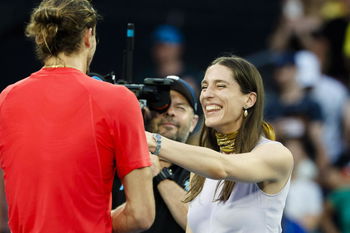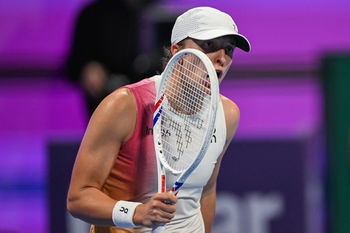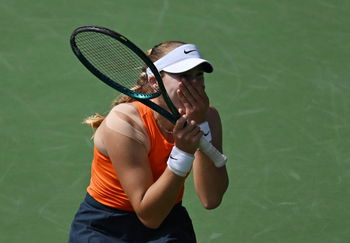Petkovic Not Convinced by Prize Money Increase: "The People You Pay Are Not Your Friends"

In recent years, the topic of prize money in tennis has resurfaced, particularly regarding pay disparities between male and female players. For several seasons now, Grand Slam tournaments have significantly increased their prize pools, while the ATP and WTA are also working in this direction.
On the Challenger circuit, the ATP has announced a substantial increase in prize money for tournaments in 2025 ($28.5 million according to reported figures).
In recent weeks, some top 20 ATP and WTA players have once again called for higher earnings in Grand Slam tournaments—a development that doesn’t sit well with Andrea Petkovic.
The former German professional player believes this has a negative impact on the team members of players on the tour and prevents the formation of deep, meaningful friendships.
"Increasing prize money unfortunately has a major downside. At the start of my career, we still shared coaches and traveled in groups with other players, slept three to a room to save money, even stole ham and cheese from breakfast buffets—forming lifelong friendships along the way.
The growth in team sizes in recent years has also contributed to increased loneliness on the tour. The people you pay are not your friends.
It might seem that way, and you might end up becoming friends in some cases, but as long as there’s a power dynamic tied to payment, there’s no equality—and a friendship isn’t truly a friendship without equality.
When players travel with physios, coaches, psychologists, and trainers, they’re surrounded by people they pay, occupying the space that real friendship requires.
A friendship where your friend doesn’t have to fear losing their job if they tell you the skirt doesn’t suit you—that’s not a real friendship," she elaborated to *Tennis Up To Date* recently.













 As a laboratory for tomorrow’s tennis, does the Next Gen Masters have a future?
As a laboratory for tomorrow’s tennis, does the Next Gen Masters have a future?  Tennis: the little-known truths about the offseason, between rest, stress and physical survival
Tennis: the little-known truths about the offseason, between rest, stress and physical survival  What if tennis lost its soul? The case of robotized officiating, between tradition and a dehumanized modernity
What if tennis lost its soul? The case of robotized officiating, between tradition and a dehumanized modernity  Features - Saudi Arabia, injuries, war, and business: the fascinating underbelly of tennis revealed by TennisTemple
Features - Saudi Arabia, injuries, war, and business: the fascinating underbelly of tennis revealed by TennisTemple 

adopted by many tennis promoters, the start and continuation of monetizing the sport has made it less enjoyable on all levels.
The governing bodies that try to control the whole thing are responsible.
Using the models of more popular brute-force type sports such as football and basketball, for example, these pin heads have created a situation in which players from a very young age feel pressured by ever more demanding training routines and competition demands.
Not okay !